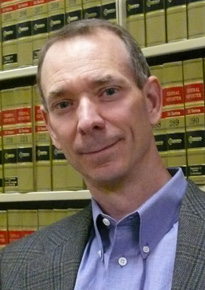Neil Kinkopf among former DOJ lawyers discussing department's recent past, future
March 3, 2009
Georgia State University Law Professor Neil Kinkopf was one of five former Department of Justice lawyers who participated in a recent panel discussion on the changes expected at the department under President Barack Obama's administration.
In a story reported by R. Robin McDonald in the Fulton County Daily Report, Kinkopf, who worked in the department's Office of Legal Counsel during the Clinton administration, said the department inherited by new Attorney General Eric Holder "is a disaster." According to the story, Kinkopf cited as examples the firing of nine U.S. attorneys and their replacement by others who professed sympathies with the Bush administration's political philosophies. Political hirings, transfers and case assignments, which Kinkopf suggested were "widespread, inappropriate and often illegal," added up to "a politicization of the Justice Department that I think is unprecedented." 
The panel discussion, which took place at a meeting of the Atlanta chapter of the Federalist Society, also included Alston & Bird partner William H. Jordan, who from 2001 to 2003 was a senior counsel in Justice's civil division; Alston & Bird partner Mark T. Calloway, who served for seven years as U.S. attorney for the Western District of North Carolina during the Clinton administration and as director of the executive office of the United States Attorneys at the Justice Department; and King & Spalding partner Paul B. Murphy, a federal prosecutor for four years in Georgia's southern district, where he also served a stint as U.S. attorney under George W. Bush. Georgia State Law Professor Eric J. Segall, who worked at Justice during President George H.W. Bush's administration, moderated the discussion.
In the Daily Report article, Kinkopf also discussed the Office of Legal Counsel, which provided guidelines for the last administration's approach to torture. The memos were a "shocking failure to live up to the standards of the legal profession," he said, and "a shocking deviation... of what the law allows and what the law forbids."
According to the story, those memos, some of which were written by John Yoo while he was working in the Office of Legal Counsel, advocated enhanced interrogation techniques such as waterboarding as legal rather than internationally outlawed practices. Yoo also suggested that the Geneva Conventions did not apply to suspected terrorist detainees and advocated a very narrow definition of habeas corpus rights that did not include those imprisoned indefinitely at Guantánamo Bay.
(Photo by Zachary D. Porter/ Daily Report)